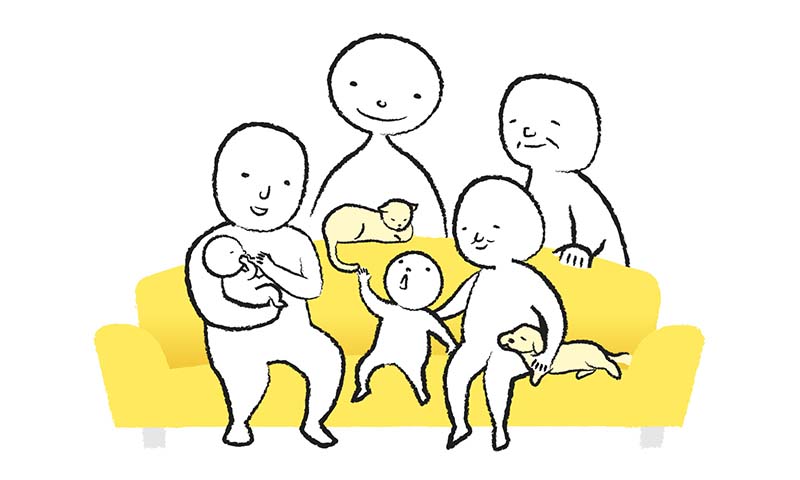
10:30 JST, October 13, 2024
Dear Troubleshooter:
I’m a male contract employee in my mid-60s. I need your advice about my 35-year-old son.
My son has been unemployed since he graduated from university. He did not even apply for any jobs during what was supposed to be his job-hunting period.
As he has never had any income, he has never paid premiums into the national pension system. He lives with me, my wife and our daughter, who works as a company employee.
For the first two or three years after his graduation from university, I tried to encourage him to get a job, and sometimes we argued. But these days we both avoid touching on the subject.
Although I find him pathetic and annoying, I sometimes feel sorry for him, thinking that he must have some sort of mental problem that makes him only able to live in this negative way.
I’m so depressed because I feel that the so-called “7040 problem” is looming over us, where parents in their 70s are supporting an unemployed child in their 40s, driving a whole family into isolation.
My son is mild-mannered and not a bad person. I hope that he will find a job that is suitable for his character and abilities. What should I do as a parent?
Z, Tokyo
Dear Mr. Z:
People tend to be conservative in general. If we are comfortable and have no problems now, we assume that things will remain like this forever.
As you fear, if your situation stays unchanged, the 7040 problem will become the 8050 problem, and eventually, your son will be left isolated without pension benefits after you and your wife pass away.
You must not wait any longer. You should understand that it is impossible to solve the problem within your family, whether through discussing it or by other means.
If your son can converse normally with family, you and your wife should take action, with the primary goal of finding a place for him outside the home, such as a volunteer position or a part-time job.
To solve the problem, you need to ask a reliable third-party specialist to intervene. Often, utilizing public services may end only with nothing more than your story being heard.
Although it costs money, I recommend you to go to a nonprofit organization with a good reputation, or a clinic that specializes in providing support for this type of problem. Do your research beforehand, visit several agencies and listen to what they have to say to find the right one for your son.
Be aware that there are also some unscrupulous agencies that take advantage of people’s difficulties, demand large sums of money and use aggressive methods.
I know it’s a lot of work. Please think of it as your final child rearing duty and do everything you can to help him.
Masahiro Yamada, university professor
Top Articles in Features
-

Sapporo Snow Festival Opens with 210 Snow and Ice Sculptures at 3 Venues in Hokkaido, Features Huge Dogu
-

Pangasius Catfish Increasingly Featured on Japanese Restaurant Menus, Home Dining Tables Due to Affordability, Mild Flavor
-

Tourists Flock to Ice Dome Lodge at Resort in Hokkaido, Japan; Facility Invites Visitors to Sleep on Beds Made of Ice
-

Venison from Culled Deer Made into Prepackaged Curry in Mie Pref. City, Creator Hopes to Inspire Young People to Hunt
-

Maltese Pavilion’s Famous Ftira Bread Now Available in Osaka; Loaves Became Popular during 2025 Osaka-Kansai Expo
JN ACCESS RANKING
-

Japan Institute to Use Domestic Commercial Optical Lattice Clock to Set Japan Standard Time
-

Israeli Ambassador to Japan Speaks about Japan’s Role in the Reconstruction of Gaza
-

Man Infected with Measles May Have Come in Contact with Many People in Tokyo, Went to Store, Restaurant Around When Symptoms Emerged
-

China Eyes Rare Earth Foothold in Malaysia to Maintain Dominance, Counter Japan, U.S.
-

Australian Woman Dies After Mishap on Ski Lift in Nagano Prefecture

























